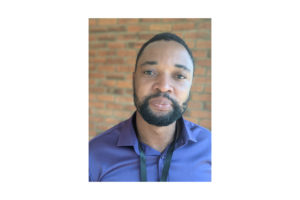Cultural differences fascinate me. Fortunately, I’m never bored in this regard. I see differences between American and Malawian culture every day. On the sidewalk Americans walk to the right and Malawians walk to the left. Malawian pedestrians are way down on the totem pole when trying to cross traffic. Since I work in a hospital and spend a lot of time there, the contrasts between medical care in Malawi and the USA is something I see many times each day.
In the USA, one parent always stays with the child. In an American intensive care unit, roughly equivalent to the level of illness of hospitalized children as we see on the Research Ward, all rooms are private. There is typically a pull-out chair that converts to a bed and a private full bathroom. It’s all climate controlled and quiet. Consequently, there is little interaction between families of children hospitalized in the USA. The only way that a family may know if another child in the ICU is doing poorly is if a Code Blue is called. If the worst happens and the child dies, it is a private affair.
Is the American or Malawian system better, or are they just different from one another?
This is very different from what happens here in Malawi. The Pediatric Research Ward, which has one of the highest levels of care in the country, has six beds on a spic and span, constantly mopped, linoleum floor. The patients’ large metal cribs are arranged in a horseshoe pattern. The room’s entrance and a couple of desks making up the final side of a square. The windows are louvered, screened, and always open, with a breeze often blowing through. Nothing is private. Next to each patient bed is a small black wooden stool. On this stool sits a guardian. This may be a parent, grandparent, extended family member, or even a neighbor. Since the relationship between the patient and this ever-present person is fluid, we use the term “guardian” to refer to them.
In other parts of Queen Elizabeth Central Hospital there are not as many nurses as on the Research Ward. A guardian’s life is busy. They must keep track of when medicines are due and laboratory tests or x-rays have been ordered. If something is missed or late, they remind the understaffed nurses. The guardian provides physical therapy services. They wash and feed their child. They provide the bedding and launder it every day. Since there are hundreds of beds in the Hospital, this results in a colorful, wildly patterned fabric mosaic on clotheslines and lying on the ground in all the hospital courtyards.
On the Research Ward, it is a bit different. The number of nurses per patient is much higher than in the Hospital. We have The Board, so no reminders to administer medications or take blood are needed. Since many of our patients end up with profound neurological disabilities (cerebral palsy, epilepsy, blindness, deafness) due to cerebral malaria, the guardian’s role in physical and occupational therapy services is greater on the Research Ward than in the Hospital. At night, guardians sleep on the hard tile floor under their child’s bed. They have no pillow. Typically, they spread out a chitenje (a large piece of beautifully patterned cotton fabric, omnipresent in Malawian clothing) on the floor. The guardians prefer to sleep with the all the lights on, even though the nurses can navigate the room using only the ambient moonlight or external streetlights. This puzzles me greatly. Is it because our patients’ families don’t have electricity? If they have electricity, is it because having the lights on full power 24 hours per day is luxurious? Despite my inquiries, no one knows. The adults sleeping on a hard tile floor want all the lights on constantly, so that is what they receive.
The guardians interact. They care for one another’s child when one of them is in the bathroom or showering. When a child is deteriorating medically, they come together, providing emotional support for the guardian of the sickest or dying child.
Is the American or Malawian system better, or are they just different from one another? American parents are more physically comfortable when their child is hospitalized, but the guardians of hospitalized Malawian children have one another’s backs. I know which system I would choose.






